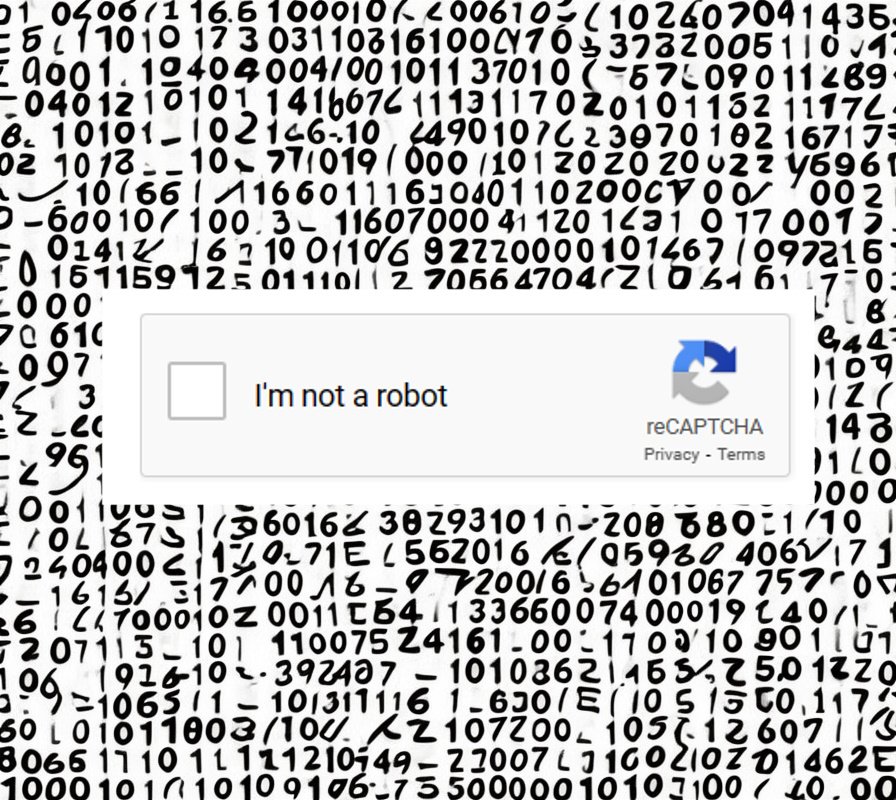We’ve all seen the “I’m not a robot” checkboxes while browsing the Internet.
These seemingly simple boxes play a crucial role in separating human users and automated bots.
But have you ever wondered why a computer can’t also click these checkboxes and pretend to be human?
In this article, we’ll delve into the mysteries world of CAPTCHAs.
What is CAPTCHA?
CAPTCHA stands for Completely Automated Public Turing test to tell Computers and Humans Apart.
They are a security measure designed to differentiate between human users and automated bots (computers).
CAPTCHAs are commonly used for:
- Preventing spam on websites
- Stopping bots from creating fake social media accounts
- Blocking ticket scalpers from buying up all available tickets on ticket-purchasing website
The Magic Behind “I’m Not a Robot” Checkboxes
The reCAPTCHA checkboxes are more complex than they appear.
The real test isn’t the act of clicking the box – it’s the additional data sent to Google when the box is checked.
Google hasn’t said exactly what this data includes, but it is likely a combination of factors such as:
Who you are:
- Your Internet address
- Login cookies
- Mouse movements
- Tapping behavior on phone screens
- Other behavioral information
The website:
- Website reputation
- Website users
What you know:
- Image recognition puzzles
- Trivia questions
Google then feeds all of this data into a giant machine-learning system that determines whether a user is human or not.
Google CAPTCHA: A Secured Black Box
The inner workings of Google CAPTCHA are known only to Google.
This “security through obscurity” makes CAPTCHA a secured black box to prevent malicious actors from reverse-engineering it and bypassing the security measures in place.
This approach helps maintain the upper hand in the ongoing battle against spambots and hackers attempting to undermine the technology. It also allows Google to refine and improve the CAPTCHA system without the risk of adversaries adapting to the changes.
But this also raises concerns among privacy advocates. The lack of transparency in how CAPTCHA works can make it difficult to understand the full extent of user data being collected and shared with Google.
So why can’t computers solve the CAPTCHA?
Sometimes computers can solve a CAPTCHA – but the ultimate goal of CAPTCHA developers is to progressively increase the requirements and complexity to stay ahead of the computers, while minimising the impact on real human users.
This ongoing a cat and mouse game, with CAPTCHA designers and bot creators continually trying to outsmart each other.
This is done by:
- Increasing Complexity: By increasing the complexity, CAPTCHA designers hope to stay one step ahead of the computers.
- Adaptive Challenges: By presenting different challenges to different users, it becomes more difficult for computers to develop a one-size-fits-all solution to bypass the CAPTCHA.
- Layered Security: CAPTCHA systems often utilize multiple layers of security, combining various tests and indicators to determine if a user is human or a bot.
- Evolving Algorithms: CAPTCHA designers continuously update and refine their algorithms by tweaking existing methods, incorporating new data sources, or developing entirely new techniques to identify and block bots.
- Balancing Complexity and User Experience: While increasing the difficulty of CAPTCHA challenges may make it harder for computers to solve them, it’s essential not to create an overly frustrating or time-consuming experience for genuine human users.
The Future of CAPTCHA
It’s unlikely that the human verification arms race will slow down anytime soon.
However, it’s essential to strike a balance between maintaining security and preserving user privacy while continuing to develop innovative ways to separate humans from bots.
With the ongoing development of new technologies, we can expect CAPTCHAs to continue evolving and adapting to the challenges presented by increasingly sophisticated bots.
